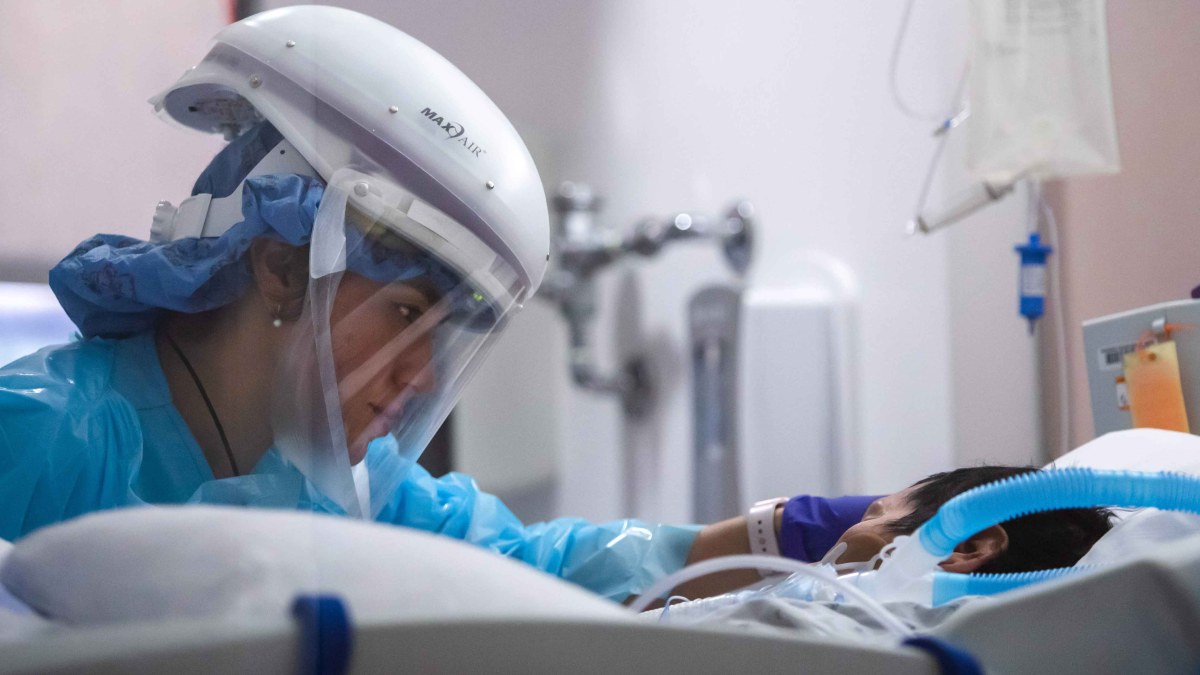
Watch in the player above when Chicago health officials first announced the nation's second coronavirus case.
This story was first published on Jan. 24, 2020. It marked the first known coronavirus case in Illinois and the start of what would inevitably become a deadly and historic pandemic.
Take a look back at the story as it was written by NBC Chicago exactly one year ago.
A woman has been diagnosed with coronavirus in Chicago, marking the second confirmed case of the new and potentially deadly virus in the United States, according to the Centers for Disease Control and Prevention.
The Chicago resident in her 60s returned from Wuhan, China - the epicenter of a recent outbreak - on Jan. 13 and was later hospitalized, a state epidemiologist with the Illinois Department of Public Health said.
The newly discovered virus, identified by Chinese authorities, has killed 26 people, sickened hundreds and prompted lockdowns of cities ahead of China's most important holiday. Doctors first reported seeing the new virus in December in people who got sick after spending time at a large seafood and animal market in Wuhan. As of Friday, more than 575 cases were reported, though no deaths have been seen outside of China.
The Chicago woman did not have symptoms while traveling earlier this month but "later presented symptoms consistent with novel coronavirus" and was hospitalized in isolation, according to Allison Arwady, commissioner with the Chicago Department of Public Health.
"A few days after arriving home, the patient began to feel unwell," Arwady said.
She remains hospitalized in stable condition and is "clinically doing well," Arwady said.
Health officials said the risk to the general public in Chicago and nationally remains low as the woman was not showing symptoms while flying.
"Based on what we know now about this virus, our concern for transmission before symptoms develop is low, so that is reassuring," Arwady said.
The woman has had "very limited movement outside her home" since her return from China, officials said, and has not taken public transit or attended any large gatherings.
Those she did come into close contact with are being monitored, along with healthcare professionals who treated her, Arwady said. A team from the CDC has also been called in to assist.
"Any time a new virus emerges we are reminded of how small our world is," Arwady said.
The U.S. reported its first case of the novel coronavirus on Tuesday with a Washington state resident who had also returned from Wuhan hospitalized in good condition near Seattle.
The man, a Snohomish County resident is in his 30s, was not considered a threat to medical staff or the public, health officials said at the time.
As of Friday, 63 people were under investigation in 22 states. Two people have tested positive and 11 were negative, according to Nancy Messonnier with the CDC. The state of New York said it had four people under investigation and in isolation.
Cases have also been reported in Thailand, Japan and South Korea.
According to the World Health Organization, the virus can cause severe disease and even death, but "for most people it causes milder symptoms."
"Among those infected, one quarter of patients have experience severe disease," WHO Director Tedros Adhanom said in a statement. "We know that most of those who have died had underlying health conditions such as hypertension, diabetes or cardiovascular disease that weakened their immune systems."
The source of the virus remains unclear, according to health experts, and there is no vaccine or specific treatment available.
Late last week, U.S. health officials began screening passengers from Wuhan at three U.S. airports — New York City's Kennedy airport, the Los Angeles and San Francisco airports. On Tuesday, the CDC announced O'Hare Airport and Atlanta's airport were added to that list.
All passengers originating in Wuhan were being forced to go to one of those five airports in order to enter the U.S. Officials at airports around the world have implemented similar screenings.
Coronaviruses are a respiratory virus that can range from a common cold to more serious illnesses such as SARS or MERS.
The virus can cause fever, coughing, breathing difficulty and pneumonia, health officials said. Such viruses are typically spread through droplets in the air, which can include coughs or sneezes.
"story" - Google News
January 25, 2021 at 01:23AM
https://ift.tt/3pfjEsl
Sunday Marks 1 Year Since Illinois' First COVID Case. Read the Story From That Day - NBC Chicago
"story" - Google News
https://ift.tt/2YrOfIK
https://ift.tt/2xwebYA
Bagikan Berita Ini














0 Response to "Sunday Marks 1 Year Since Illinois' First COVID Case. Read the Story From That Day - NBC Chicago"
Post a Comment